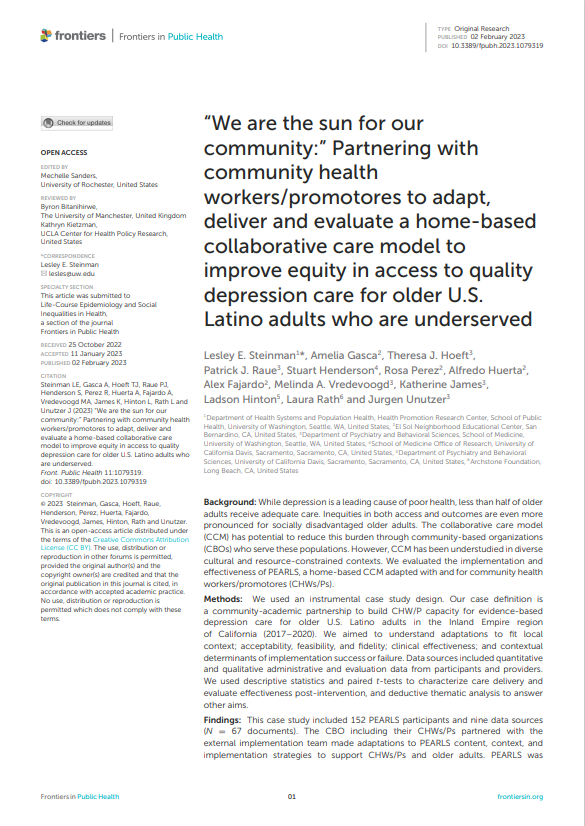Headline
A home-based collaborative care model using community health workers shows reductions in depression and increased connection to services for older adults.
Context
Depression is a leading cause of health-related disability and can have significant impacts on quality of life and health outcomes. Socially disadvantaged older adults, particularly persons of color and those
with limited English proficiency, face inequities in access to depression care and have greater disparities in depression outcomes. The Collaborative Care Model is a promising approach to improving access to high-quality depression care for older adults but has been understudied in diverse cultural and resource-constrained settings. This case study examines the implementation and effectiveness of the Program to Encourage Active, Rewarding Lives (PEARLS) adapted for delivery by community health workers and promotores (CHWs/Ps) for older Latino immigrants with depression.
Findings
The authors used a range of quantitative and qualitative data sources from PEARLS participants and providers to examine how effectively the adapted program fit local context. The primary modification to PEARLS for the program was to better address the multiple intersecting needs of the older Latino population, particularly related to social determinants of health. Overall, the authors found that the adapted program was acceptable, feasible, and delivered with fidelity. Participants showed significant reductions in depression severity and received support for additional social needs. Drivers of successful program delivery and impact included community-based organizations (CBOs) and CHWs/Ps’ strong trust and rapport with the community, regular internal and external coaching and consultation, and team and leadership buy-in.
Takeaways
This study demonstrates the collaborative care model, adapted to be delivered by CHWs/Ps at trusted CBOs and provide culturally and linguistically appropriate care in accessible settings, can improve access to depression care for older Latino adults. Building capacity among non-specialist workers to deliver community-based interventions can help address disparities in access to quality mental health treatment, particularly in resource-constrained settings.

